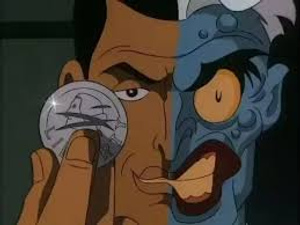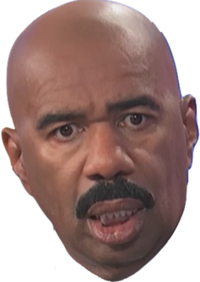 safe
safeyup
more than anything what agitated me was peoples lack of understanding about artist run labels just being a cog in the machine and not some independent self run thing
all corporate umbrellas
- DefinitionsExecutive Producer
 safe· edited
safe· editedA lot of the time you see this relating to an album. For example, Drake was the Executive Producer on BTG by Young Thug. This does not mean that Drake had any role in the album’s instrumentals (this is a producer). This role can vary massively but usually involves helping to direct the creative focus for the project, having a role in shaping the tracklist, helping choose cover art and more. On the more involved side it can include direct involvement in the recording of the album or single, funding of the project, choosing mixing engineers and more.
IndependentThis means a lot of things and is often far from the truth. To look at this let’s take a minute to examine Frank Ocean. Frank Ocean became independent following the release of the visual album Endless as he fulfilled the label contract. Blonde was released with Frank Ocean owning publishing and his masters though he had a deal with Apple Music which may have been relating to distribution. He also had a distribution deal with UK indie label XL Recordings who produced the CD and Vinyl for the album. Frank then signed a publishing deal with Warner-Chappell. He is not associated with a record label and owns his masters, but he now does not own his publishing. When an artist is referred to as independent it does not mean they are keeping every dollar they earn – it may mean they are signed to an independent label, that they own their masters or similar. They may well have major backing – Chance the Rapper received significant backing from Apple.
Independent Label
Simply put, a label that is not under the umbrella of the Big 3. Independent labels have less resources but often provide far higher artist royalty rates. Some of the most notable are XL Recordings (Adele, Tyler, Vampire Weekend, Jai Paul), Dirty Hit (the 1975, Rina Sawayama, Blackstar Kids (shoutout MITCH!)) and 10k Projects (6ix9ine). 10k Projects is an example of a label masquerading as independent – it is run by the son of UMG’s CEO and is heavily tied to the corporation. The benefit of signing to an independent is a far greater royalty share (more like 50% vs around 15% with major labels) and more attention from the label since they tend to be smaller.
AdvanceAn advance is a sum of money paid to an artist by a label upon signing. Brockhampton for example signed a $16 million deal with RCA. This is not a flat sum payment – it is a loan. Artists are obligated to repay that in the form of royalties. It gives the artist money to invest in their music – features, better equipment and etc.
360 DealAnother term you see a lot is a 360 deal. Essentially a 360 deal refers to a deal that allows labels to take money from everything you generate. A typical deal won’t include money an artist makes from merchandise and touring for example and as a result these are areas artists make most of their money from (given the small royalty cut for major label artists). A 360 deal reduces this significantly.
this cleared a lot up.
great thread OP just read it going to send to my mates because they always ask me this question and i know what i wanna say but i can not articulate it what i wanna say without going in death and confusing them
amazing thread!!!!
hey safe
what do u think of these record labels telling rappers to rap about destructive things on purpose to influence youth (more specifically the impoverished black youth)
like the overload of perc bars while we have an opioid epidemic going on.
u think that’s a real thing or no?
 Magenta 💞Jun 4, 2020
Magenta 💞Jun 4, 2020another great thread from op

this is a really in depth comprehensive vid explaining not necessarily the music industry, but more on a micro level; musicians. This is how they make money, and how revenue is generated for them. This is usually for smaller musicians, though case by case.
The pressure is really applied once artists start to get scammed by companies.
The three scams: Pay to Play, Lazy Publisher, Pitch for Pay
A lot of people on here don’t know how the industry works and you were spot on. Great thread mang
 lilhook
lilhookhey safe
what do u think of these record labels telling rappers to rap about destructive things on purpose to influence youth (more specifically the impoverished black youth)
like the overload of perc bars while we have an opioid epidemic going on.
u think that’s a real thing or no?
its an interesting question
I think to some extent yes I would guess the idea of labels pushing artists to adopt an image of d****, violence etc is likely true. the vast majority of successful rappers from the last few years came up with content that related to d**** or violence or s***if not all 3
theres also an enormous amount of money in music and rap is the biggest genre in music rn so I think its pretty likely labels are looking at data relating to this sorta thing and encouraging it if it sells
theres a really great article here from huffiest which you should read: huffpost.com/entry/opinion-mac-miller-drugs-addiction-overdose-music_n_5b96d24ae4b0162f47300ac7
couple important parts of it
“Is it opportunistic” to sign artists who rap about d*** abuse, Cohen asked in the interview. “Yeah. I got people to feed.” The music industry’s entire business model is predatory. And it’s predicated on allowing artists to destroy themselves under the guise of creative expression.
Cohen here being Lyor Cohen founder of 300 ent
“The industry has no safety net for artists, or executives, who fall off the wagon and find themselves in trouble,” Marot said. “We light fires underneath them and we just fuel the fire with endless promotion.“
Marc Marot - island records former CEO
- !https://youtu.be/kLEQ2Ye8Yvw
 Carmen is Composed
Carmen is Composedthis is a really in depth comprehensive vid explaining not necessarily the music industry, but more on a micro level; musicians. This is how they make money, and how revenue is generated for them. This is usually for smaller musicians, though case by case.
The pressure is really applied once artists start to get scammed by companies.
The three scams: Pay to Play, Lazy Publisher, Pitch for Pay
gonna give this a watch later

smaller artists is interesting to me - its a business that even with the internet age is really really tough to make a living in especially without the support of labels The only thing that I myself don’t understand really (having interned within the industry and having a decent amount of knowledge regarding it as well) is how an artist or band can be signed to an independent label and have an exclusive license to a subsidiary. What are the logistics behind that? For example, The 1975 is signed to Dirty Hit as you mentioned, but they have an exclusive license to Interscope @safe
 lil sunny
lil sunnyThe only thing that I myself don’t understand really (having interned within the industry and having a decent amount of knowledge regarding it as well) is how an artist or band can be signed to an independent label and have an exclusive license to a subsidiary. What are the logistics behind that? For example, The 1975 is signed to Dirty Hit as you mentioned, but they have an exclusive license to Interscope @safe
so in this situation its usually on an album by album or song by song basis and usually dependent on region
essentially when something says exclusive license to Interscope it means that the artists label (Dirty Hit) have sold the exclusive rights to that album to Interscope. like I said it is usually an album by album basis and it might just be like in Mexico for example Interscope have the rights to the album but Dirty Hit have the rights in the USA
its pretty common for independent labels to do this since they dont really have the resources to market the album in so many places - big labels do this too though, sometimes an album on Sony might be licensed to universal in certain countries. it can be a win-win since Dirty Hit probably would get less money from selling the album in say Mexico on their own than what Interscope will pay to license it and Interscope will likely earn more revenue from the album in Mexico than they paid to license it





